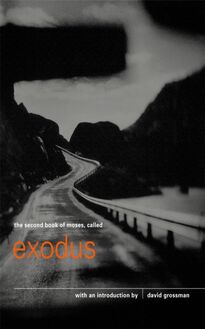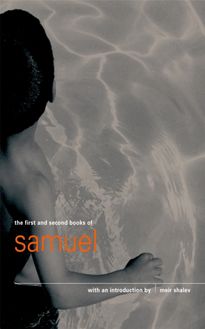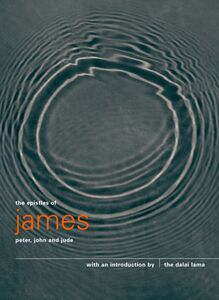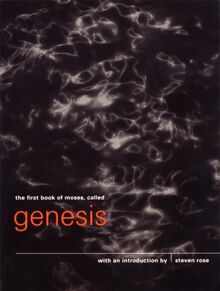Wisdom of Solomon , livre ebook
27
pages
English
Ebooks
1999
Vous pourrez modifier la taille du texte de cet ouvrage
Obtenez un accès à la bibliothèque pour le consulter en ligne En savoir plus
Découvre YouScribe et accède à tout notre catalogue !
Découvre YouScribe et accède à tout notre catalogue !
27
pages
English
Ebooks
1999
Vous pourrez modifier la taille du texte de cet ouvrage
Obtenez un accès à la bibliothèque pour le consulter en ligne En savoir plus
Publié par
Date de parution
01 janvier 1999
Nombre de lectures
3
EAN13
9780857861061
Langue
English
Contents
Title Page a note about pocket canons introduction by piers paul read the wisdom of solomon 2 3 4 5 6 7 8 9 10 11 12 13 14 15 16 17 18 19 Copyright
a note about pocket canons
The Authorised King James Version of the Bible, translated between 1603–11, coincided with an extraordinary flowering of English literature. This version, more than any other, and possibly more than any other work in history, has had an influence in shaping the language we speak and write today.
Twenty-four of the eighty original books of the King James Bible are brought to you in this series. They encompass categories as diverse as history, philosophy, law, poetry and fiction. Each Pocket Canon also has its own introduction, specially commissioned from an impressive range of writers, to provide a personal interpretation of the text and explore its contemporary relevance.
introduction by piers paul read
Piers Paul Read, the third son of the poet and critic, Sir Herbert Read, is the author of thirteen novels and four works of non-fiction, among them Alive: the Story of the Andes Survivors. His nov els have won a number of awards, among them the Hawthornden Prize, the Somerset Maugham Award and the James Tait Black Memorial Prize. Alive received the Thomas More Award for Catholic Literature in the us. He is a Fellow of the Royal Society of Literature and is vice-president of the Catholic Writers ’ Guild. His most recent book, The Templars , is a work of history. He is married with four children and lives in London.
As a child I was greatly impressed by the story in the Bible of how King Solomon came to acquire great ‘riches, and wealth, and honour’ and innumerable concubines and wives. God appeared to him in a dream and promised to give him anything he asked for. Solomon chose wisdom which so pleased God that he gave him everything else besides. Here was the formula, surely, for the God-fearing hedonist to have his cake and eat it.
Despite Solomon’s example, however, I suspect that few of us, if given the same opportunity, would make the same choice today. Wisdom has gone out of fashion. The very word is one of a number in the English language that we find frequently in works of literature but seldom in everyday life. In the half-century that has passed since I reached the age of reason, I can scarcely remember ever having heard a philosopher, statesman or indeed anyone else described as wise. Our most common terms of approbation tend to be ‘intelligent’, ‘clever’, ‘astute’, ‘shrewd’ or ‘high-powered’. The skills of our rulers lie in reading the runes of focus groups and opinion polls, and the image they want to project is of someone vigorous, forceful, youthful, dynamic – not wise. In the academic world, professors are appointed for their specialist knowledge, not their overall sagacity, and university chancellors are chosen more for their abilities as administrators and fundraisers than as the elders of their people.
Even philosophers who, from the etymology of the word that denotes their calling (love of wisdom), might be expected to give it some meaning, are no longer wise. Continental philosophers spew out incoherent gibberish while British linguistic philosophers have narrowed their focus to the point of irrelevance. The Professor who taught me at Cambridge was actually called John Wisdom but he restricted speculation in our seminars to how we could know whether or not our desks existed. Bertrand Russell and A J Ayer were undoubtedly highly intelligent men but, to judge from their private lives, could not be called wise.
What do we learn about wisdom from The Wisdom of Solomon ? Had I read it as a child, I would have been disappointed to discover that it is not a handbook on how to have your cake and eat it. Nor was it in fact written by Solomon: his putative authorship was as a commonly used literary convention. Modern scholarship suggests that it was composed by a Jewish sage living in Alexandria [in Egypt] in the first century before Christ. Alexandria at the time had a largely Greek population and an essentially Greek culture: The Wisdom of Solomon was written in Greek and quotes from the Greek version of Scripture but it is addressed to Jews – reminding them of their special destiny and warning them against the spiritual and intellectual temptations that surround them – mysterious cults, pagan rituals, sophisticated philosophical systems. It has none of the anguish of the Book of Job or the pithiness of Proverbs , but it is fascinating first as a text that was familiar to the first Christians and then as a critique of the kind of sceptical, hedonistic society that we find in the developed world today.
The influence of The Wisdom of Solomon on St Paul and the Christian Evangelists, particularly St John, make it a link between the Old and New Testaments. The description of Wisdom could be that of the Holy Spirit: ‘For she is the breath of the power of God, and a pure influence flowing from the glory of the Almighty: therefore can no defiled thing fall into her. For she is the brightness of everlasting light, the unspotted mirror of the power of god, and the image of his goodness … and remaining in herself, she maketh all things new: and in all ages, entering into holy souls, she maketh them friends of God, and prophets’. (7:25–27).
There is also the author’s esteem for virginity: ‘Better to have no children and to have virtue …’ (4:1). ‘Wherefore blessed is the barren that is undefiled, which hath not known the sinful bed: she shall have fruit in the visitation of souls. And blessed is the eunuch, which his hands hath wrought no iniquity, nor imagined wicked things against God’ (3:13–14). This was a radical departure from the accepted notion in Judaism that fertility was a sign of God’s blessing and sterility a sign of his disapprobation; and it echoes the passage in St Matthew’s Gospel (19:12) where Christ blesses those who make themselves eunuchs for the sake of the Kingdom of God – the text that justifies celibacy as a Christian ideal.
The Wisdom of Solomon ’s critique of the permissive society of Alexandria in the first century BC goes some way to explain why, in an agnostic age, wisdom has gone out of fashion. To the author, God is the source of wisdom and it is vain to believe that we can reach a true understanding of our condition through the use of our own intellectual resources. ‘For what man is he that can know the counsel of God? Or who can think what the will of the Lord is? For the thoughts of mortal men are miserable, and our devices are but uncertain. For the corruptible body presseth down the soul, and the earthy tabernacle weigheth down the mind that museth upon many things’ (9:13–15).
Thus, to be wise, a man must be virtuous because sin blocks the conduit from God to man. A virtuous king will be a wise king and therefore a good king, benefitting the community he serves. ‘But the multitude of the wise is the welfare of the world: and a wise king is the upholding of his people’ (6:24). The benefits of wisdom accrue also to the individual and those around him while the sinners’ families share their fate – their ‘wives are reckless, their children depraved, their descendants accursed’.
However, the source of the happiness that comes with wisdom is not necessarily the riches, honour and triumph of a Solomon: wisdom will ensure that even if a man does not prosper in this life, he will find his reward in the next. Here we see how the Platonic distinction between body and soul solves the riddle posed by the earlier book of Job , and by our observation of the suffering of innocent people. In contrast to the prevailing Jewish view that prosperity and longevity are marks of divine approbation, the author warns the reader not to search for happiness in precisely those things that came to Solomon with his gift of wisdom – honour, riches, concubines and wives. The first twenty verses of the second chapter are in fact a satirical apologia of those who believe that we should eat, drink and be merry for tomorrow we die. ‘Our life is short and tedious … the breath in our nostrils is as smoke … Come on, therefore, let us enjoy the good things that are present: and let us speedily use the creatures like as in youth. Let us fill ourselves with costly wine and ointments: and let no flower in the spring pass by us’ (2:1–2, 6–7).
To the modern ear, there is something bleak and perhaps a little crabby about the teaching of this Jewish sage. Was he, one wonders, jilted in his youth or passed over for promotion? The nearest equivalent in the present day might be a disgruntled old Catholic priest in San Francisco or New York who feels that society has gone to the dogs – everywhere; ‘manslaughter, theft, and dissimulation, corruption, unfaithfulness, tumults, perjury, disquieting of good men, forgetfulness of good turns, defiling souls, changing of kind, disorder in marriages, adultery, and shameless uncleanness’ (14:25–6). He seems to relish the fate that awaits sinners: and is delighted that God vents his wrath on their children too, but he is not as vindictive as he at first seems. He wants to persuade his readers that they will benefit from Wisdom because it fosters temperance and prudence, justice and fortitude ‘which are such things, as men can have nothing more profitable in their life’ (8:7). In other words, wisdom, like virtue, is its own reward.
Although Wisdom is not given an existence distinct from that of God in The Wisdom of Solomon , it is personified in the female gender a














